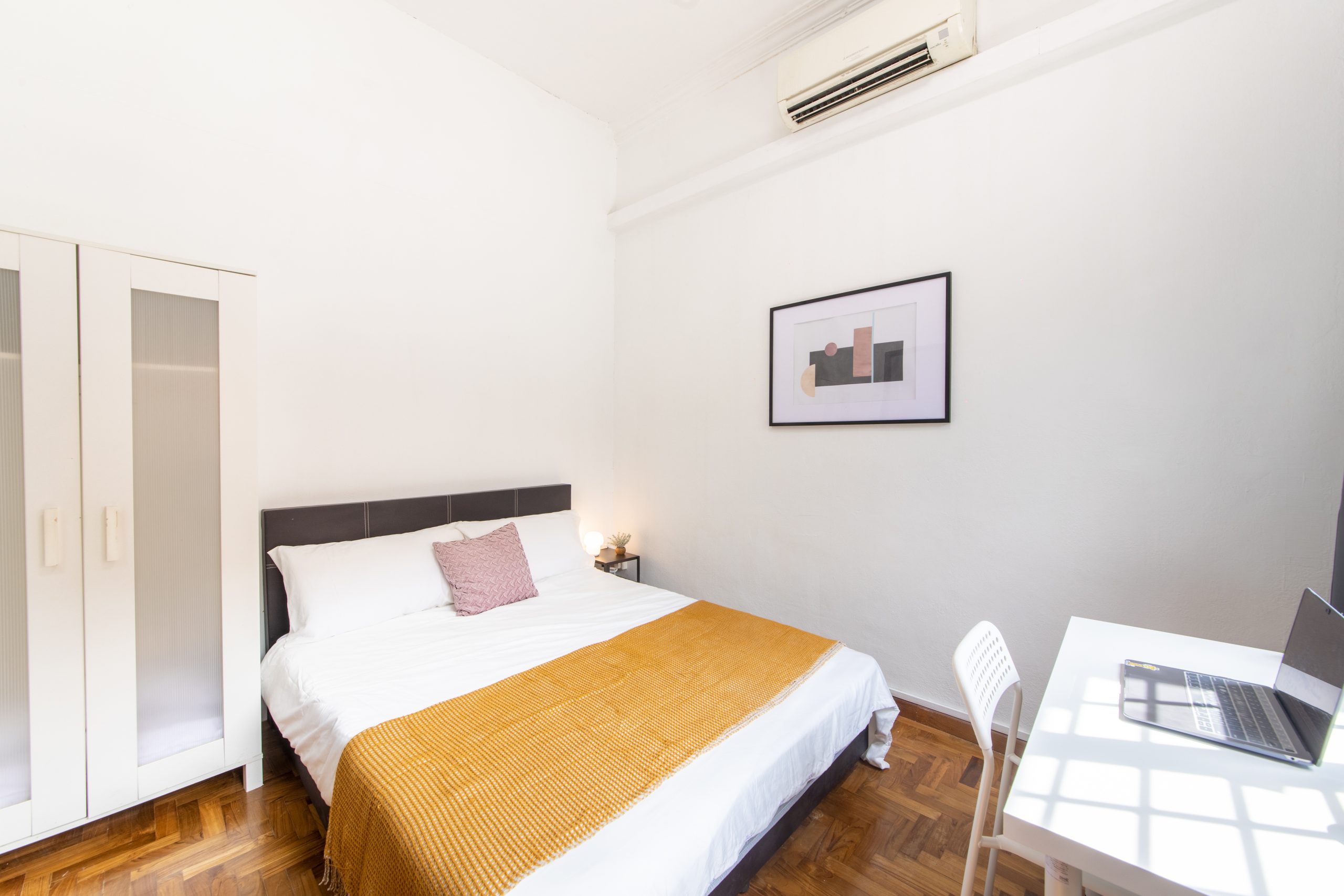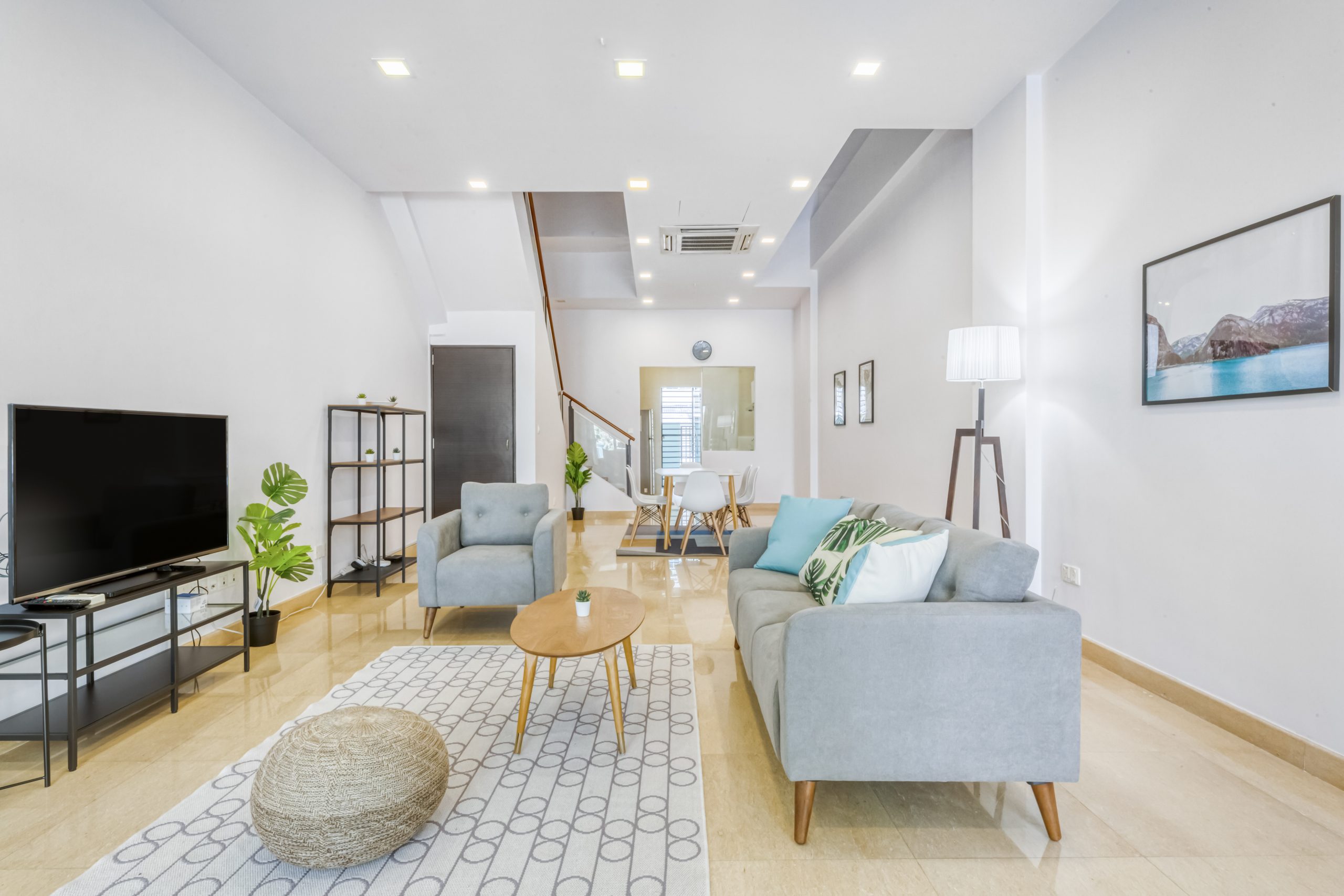The thing about growing up in an Asian household is that you’ll probably only leave the family home when you get married. Or if you work in another city.
Even more so in Singapore, where property prices are sky-high and singles have to be at least 35 years old to buy public housing, most will probably only move out of the family home in their 30s.
But due to the pandemic, more people have been working from home and spending more time at home. As it blurs the line between work and play, more are yearning for personal space.
More millennials are moving out of their family home to rent
So we’re hearing more millennials moving out of the family home to live independently and embrace a new experience. Doing so also allows them to have more freedom with their day-to-day living.
According to the Department of Statistics, there’s a 57% increase in those aged below 35 living alone, from 15,900 in 2019 to 25,000 in 2020.
But given the high cost of homeownership and age barrier to own public housing for singles, the option would be to rent first.
One common argument against renting is that it’s basically helping to pay for the landlord’s mortgage. The money used to pay rent could have been saved to buy a house in future or for other needs. On top of that, it means having less disposable income to spend on other things, be it the daily bubble tea or the yearly upgrade to the latest Apple product.
Yet, all these factors don’t stop millennials from moving out to rent. HDB and condo rents have been increasing over the past year, despite the lower number of expats currently here.
According to our rental market report for October 2021, there’s a month-on-month price increase of 0.2% for HDB and 1.3% for condos. Year-on-year, rental prices have increased by 8.3% for HDB and 9.1% for condos. In terms of volume, there’s a month-on-month increase of 8.2% for HDB and 10.1% for condos.
Co-living: An alternative rental option that millennials go for
But millennials don’t just go for the traditional rental. Some opt for co-living, which in Singapore has traditionally been dominated by expats before the pandemic.
According to Guillaume Castagne, co-founder and CEO of co-living provider Cove, local millennials comprise 16% of their total tenant pool. He adds that they’re mainly singles and young couples looking for independence and freedom, enjoying a well-located and hassle-free rental experience.
The appeal of co-living is that the units are all fully-furnished, allowing tenants to move in without much hassle. On top of that, they usually come with utilities, wifi and housekeeping.

“Renting a place in a convenient location was previously out of reach for many young Singaporeans. But now with products like co-living properties and studio apartments, it becomes very affordable to rent a nice quality place close to the CBD and Singapore’s more trendy and lively neighbourhoods.”
Another advantage of co-living is the availability of flexible leases, as opposed to the standard one- or two-year contracts for traditional rental. Guillaume remarks that this allows them to better cater to the needs of the younger crowd who may switch jobs more frequently and move to another location and those who want the freedom to change their living arrangements on shorter notice.
“Since we’ve launched, there’s been a boom in Singapore’s co-living spaces. And with more locals now considering co-living as a viable option, it’s definitely growing faster than ever.”
Renting as an attractive interim option before homeownership
Given that singles and the LQBTQ+ have to wait till they’re 35 to apply for public housing, renting is the next best option if they wish to move out of the family home earlier, and private housing is out of reach.
But they aren’t the only ones renting. Construction delays have also made couples turn to renting as they wait for their new home to be completed.
Nevertheless, with the high rate of homeownership and property being seen as a retirement nest egg in Singapore, owning a home is still the ultimate goal for most millennials.
“We recognise that residential real estate is a resilient asset class, even in times of disruption, because people will always need a place to live,” Guillaume tells us. While homeownership is still a desirable goal for most Singaporeans, he believes the evolving dynamics of the property buying market has led to more people turning to renting as an interim solution.
This trend, he says, is compounded by an attitude shift among young people who are starting to value the benefits of independence from the family unit, and recognising that paying rent is an investment in achieving the lifestyle they want as young adults.
“The emergence of rental solutions like Cove where tenants do not have to invest in furniture and can stay for anything from just three months makes rental much more affordable, even for those who are trying to maximise their monthly savings to ultimately buy a place.”
In fact, Guillaume believes that Covid-19 has accelerated the opportunity for co-living to be seen as an option to take before homeownership in Singapore.
Gaining new experiences and learning valuable skills through renting
On the other hand, renting doesn’t have to be purely for those who seek freedom and privacy. It gives millennials the chance to experience living in different neighbourhoods and even various home types before settling down with what they like.

And just like staying in a student hostel or going on an overseas exchange, renting allows them to be more independent and pick up valuable skills such as budgeting and managing their living space.
Guillaume points out that in the case of co-living, it also offers the opportunity to cohabit with different people and build a vibrant network of friends that can enrich their lives.
“To a subset of young people who value these things, rental may stack up as a more desirable alternative to buying a place, at least in their 20s, 30s and early 40s until their lives reach a more stable or consistent trajectory and they may have settled down to have a family.”
Have you rented before owning your own home? Let us know in the comments section below or on our Facebook post.
If you found this article helpful, 99.co recommends The future of co-living spaces in Singapore in the next five years and Co-Living Tech Startup The Assembly Place raises $5.55 mil in seed funding.
Looking for a property? Find the home of your dreams today on Singapore’s fastest-growing property portal 99.co! If you would like to estimate the potential value of your property, check out 99.co’s Property Value Tool for free. Meanwhile, if you have an interesting property-related story to share with us, drop us a message here — and we’ll review it and get back to you.
The post How renting can be a step for millennials to take before owning a home appeared first on 99.co.











